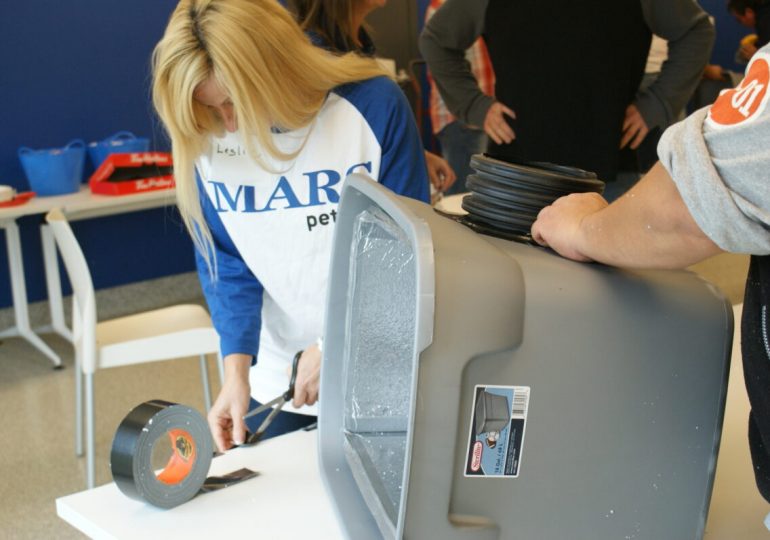Cat overpopulation in Ontario is an ongoing issue, largely due to a lack of access to basic spay/neuter and wellness services. This unfortunate reality has led to a staggering number of feral cats across the province. To address this challenge in an effective and humane way, the Ontario SPCA and Humane Society has taken proactive steps, launching specialized programs to help colony caretakers manage feral cat populations.
One of the most successful approaches to stabilize these populations is the Trap, Neuter, Vaccinate, Return (TNR) method. It is not only cost-effective, but also the most compassionate solution available. By neutering and vaccinating feral cats before returning them to their colonies, caretakers can prevent the cycle of overpopulation, while ensuring these cats are healthier and protected.
To support feral cat caretakers in their vital work, the Ontario SPCA has developed three key programs:
1. Feral Cat Trap Depot Program
The Feral Cat Trap Depot Program provides caretakers with cat traps at no charge. These traps are essential tools for safely capturing feral cats, allowing them to be neutered, vaccinated, and returned to their managed colony. This program is crucial in preventing the cycle of feral cat overpopulation and ensuring healthier colonies. We recognize the financial and emotional burden on caretakers and are committed to assisting in this vital step toward population stabilization.
2. Free Feral Food Bank
Many feral cat caretakers already donate their personal funds to feed colonies. This is where the Ontario SPCA’s Free Feral Food Bank comes in, providing cat food at no cost to colony caretakers. This support is a lifeline for many individuals who, despite their dedication, can struggle to afford the necessities to keep their colonies fed and healthy. The food bank is an example of the Ontario SPCA’s commitment to ensuring both the cats and their caretakers have the resources they need to thrive.
3. Feral Cat Shelters
Ontario winters can be harsh, and feral cats are particularly vulnerable during the colder months. Each fall, the Ontario SPCA and its dedicated volunteers prepare feral cat shelters to help caretakers provide a warm, safe place for cats to spend the winter. These shelters are available for pick-up at various animal centre locations and clinics, including Barrie and Stouffville. If you’re interested in building one yourself, check out our blog for affordable, easy-to-follow instructions.
Caring for community cats
By supporting the colony caretakers who dedicate their time, effort, and personal resources to these animals, the Ontario SPCA is taking a proactive approach to solving the rising feral cat population. Through these programs, we are providing solutions rooted in care, compassion, and community involvement that can make a real difference.
If you are interested in becoming a colony caretaker or in supporting these efforts, visit communitycats.ca.
As a registered charity that does not receive annual government funding, the Ontario SPCA depends on the generosity of donors to change the lives of animals in need. Donate today to help support these life-changing initiatives.
The post National Feral Cat Day: Caring for community cats appeared first on Ontario SPCA and Humane Society.
Leave a comment






